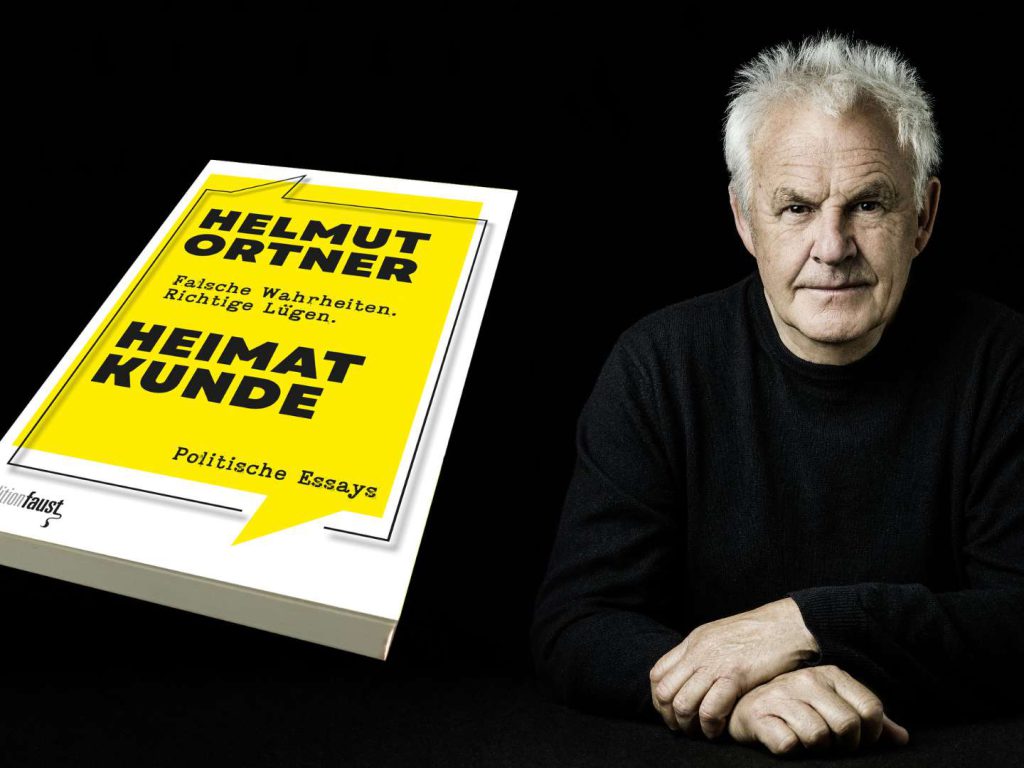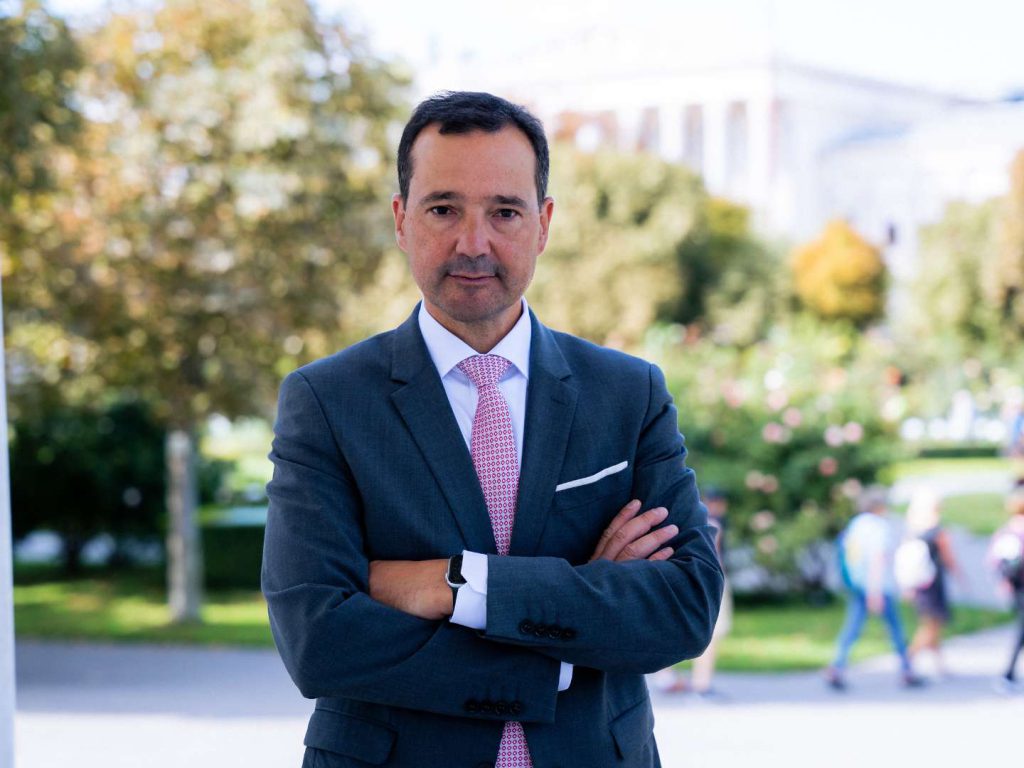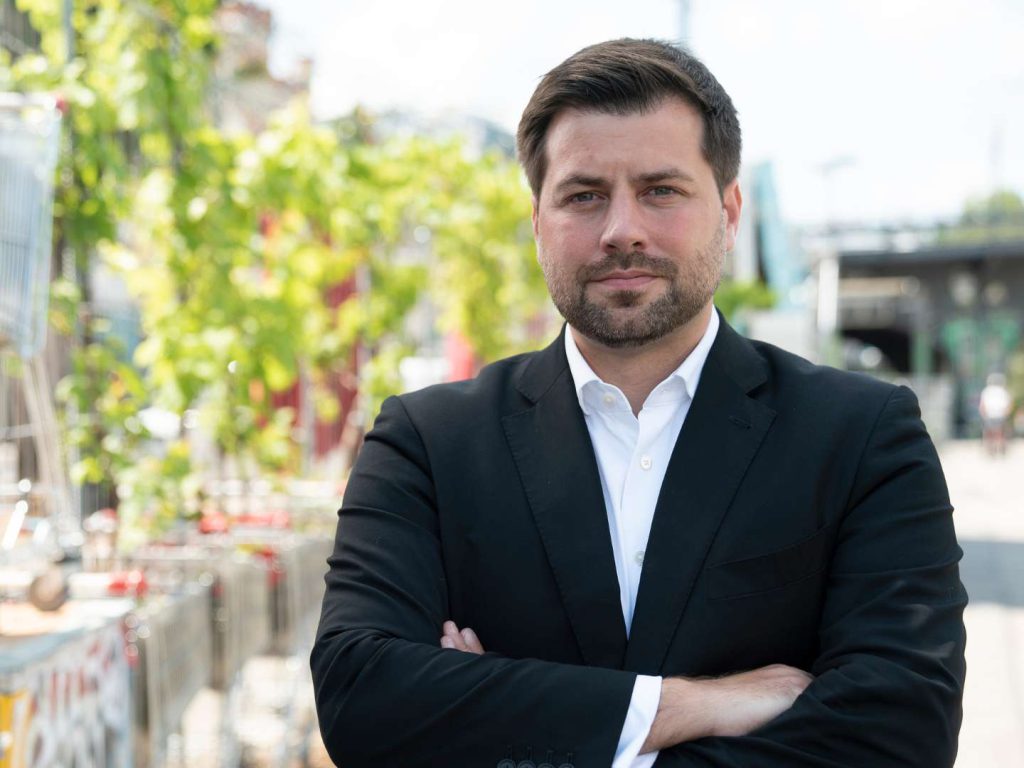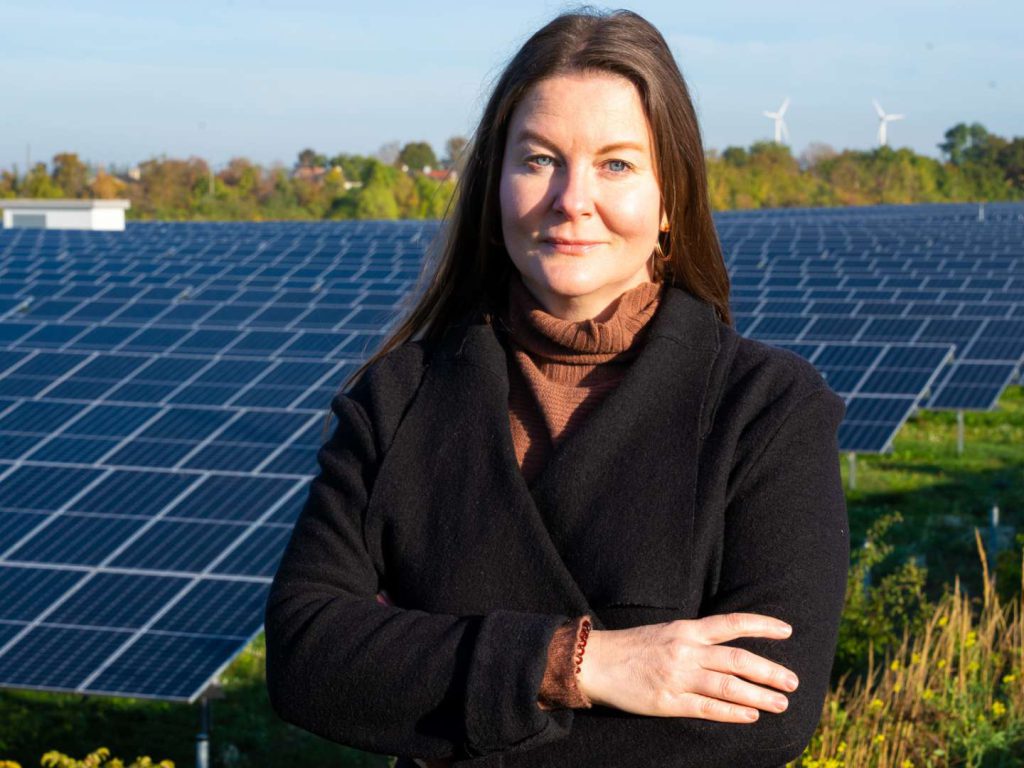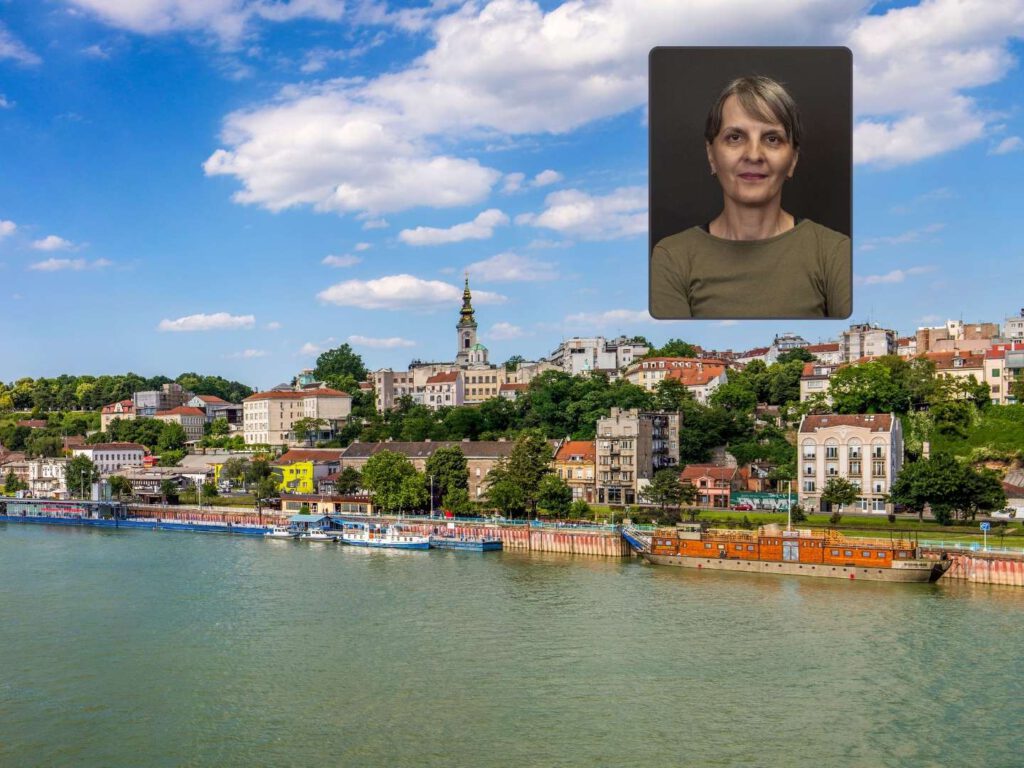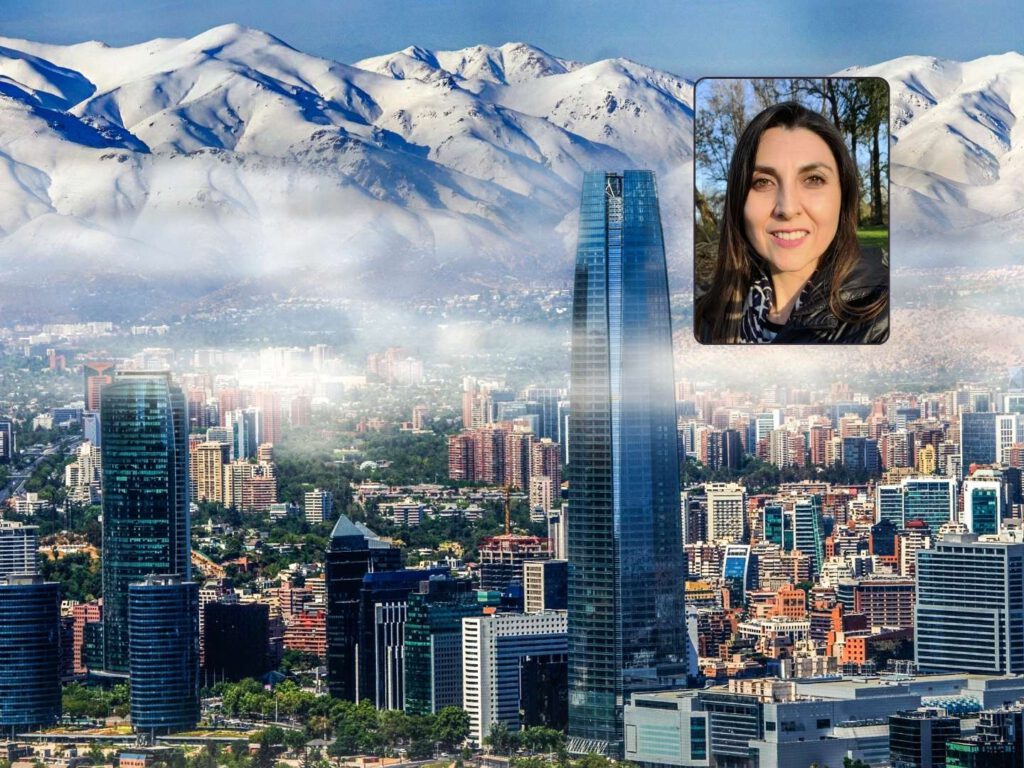Kim Lane Scheppele: „Hungary is no longer a democracy“
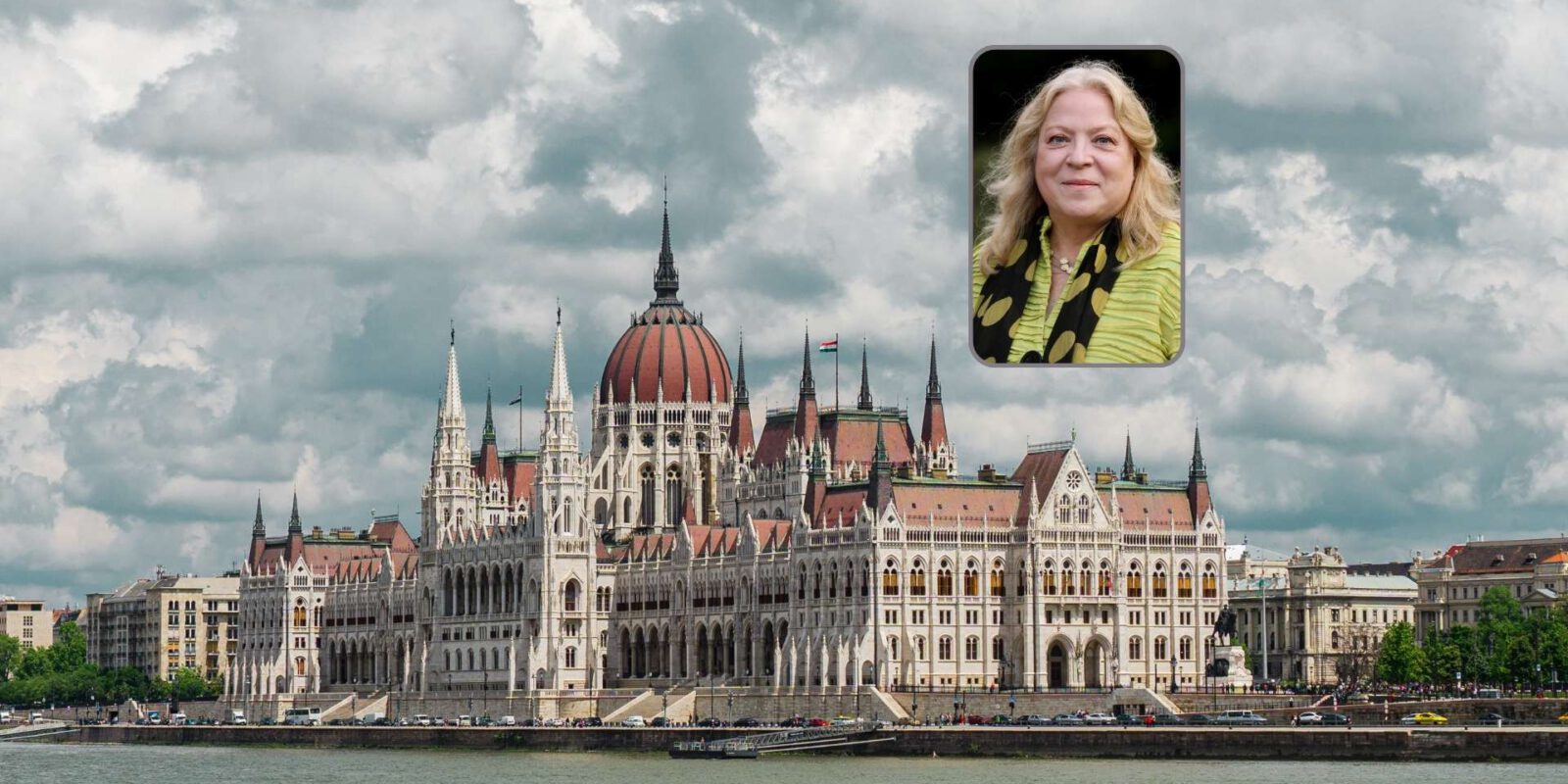
Die deutsche Version dieses Interviews gibt es hier.
Viktor Orbán is being courted and held up as an example by many of Austria’s political leaders, especially the FPÖ. Yet the country is characterized not only by the highest inflation in Europe, but also by control of the judiciary and the media. Is this mere anti-foreigner rhetoric? Or is it an open threat to abolish democracy step by step?
Political scientist Kim Lane Scheppele is looking into this very issue. At Princeton University in the U.S., she teaches and researches the rise and fall of constitutional democracies – in other words, how democracy turns into autocracy. This inevitably gives her a strong focus on Hungary, which she no longer sees as a democracy. Scheppele lived in Hungary herself for some time, knows the language, and regularly reads laws to observe Hungary’s transformation into an authoritarian form of government.
What do we mean when we talk about „Orbanisation?“
Orbaniziation proceeds on two different tracks that are a bit independent of each other. One is rhetoric: In America, we would call that an „anti-woke agenda“ against political correctness. A set of issues that has to do with anti-LGBTQ-rights, anti-immigration, in favour of traditional values and so on. Mr. Orbán always claims he is defending „christian Europe“. The „illiberal“ he talks about means a traditional, christian democracy. That provides a way to unite people across the political spectrum.
And then there’s another level: Turning democracy into an autocracy. And that happens through the steady removal of constraints through the power of the executive. And that has gone along with Orbáns rhetoric, and it doesn’t usually follow it. If you want to be against immigration and gay rights, it doesn’t mean you have to control the judiciary. It doesn’t mean you have to control the media, the central bank, the competition office, the prosecutors office and anything else. It doesn’t mean you have to rig elections.
Those are two different things. They go together in „Orbanistan“, as some people call it. But different kinds political groups can be attracted to different parts of it. Do you want the rhetoric, the anti-woke political agenda? Do you want autocracy? Or do you want both?
Would you say Hungary is still a democracy?
I think Hungary has not been a democracy since 2013. That was when Orbán changed the election laws so it’s impossible for any other party to win the election. Every time the opposition parties find a loophole in Orbáns system and try to organize, he changes the rules again and makes it impossible for them to win. I have a simple definition of democracy: Can you change the leaders through elections? And when that stops, you have no more democracy. And on that account, Hungary is no longer a democracy.
Why exactly can’t the opposition win?
The electoral law is crucial. The most important thing is that Orbán made a proposal to cut the parliament in half. And actually that looked like a good idea: The parliament was enormous, and even the opposition thought it wasn’t a bad idea. But as soon as parliament was cut in half, all the single-member districts, all the constituencies had to be redrawn. And that gave Orbán the ability to gerrymander the entire country at once. So in 2014, which was the first election after he made these changes, he won 44 % of the vote and got 91 % of the district. And there’s a bunch of other rules as well that all supplement these majorities. So every time there’s an election in Hungary, Orbán wins half or less than half of the vote but gets two thirds of the seats. In Hungary, that’s when you can change the constitution – so that means he is above the law. He can wake up in the morning and decide to change the constitution.
Which role does the media play? Do Hungarians actually know about this?
Hungarians have the lowest percentage of people who speak a foreign language of any EU member state. Which is a bit odd, because it is a small, weird language. But most people only get Hungarian news, and Orbán concentrated on getting control over television and radio first, which is how most people get their news. Then print media, then streaming media. But if something happens in English or German, he doesn’t really care about suppressing it, because most people can’t read it.
Orbán started by letting his oligarchs buy some of the private media. Because frankly, the private media were all in economic trouble: With the advent of the Internet, a lot of them didn’t switch really well. When Orbán got to power, he took over public media: They fired a lot of journalists from the public media and re-hired their own party people. And then he used the power of regulation to bring all the other media under his control. There’s one independent radio station, all on the Internet, there are small newspapers, mostly available in the capital Budapest. But the rest is an Orbán echo chamber.
One of our authors writes about a moment in an election campaign, if you want to call it that, where Orbán walked around in Budapest followed by international reporters. These journalists raised questions about the freedom of the media and Orbán’s response was walking into a newsagent and asking for newspapers that criticized him – something that can only be found in Budapest.
This is the new dictatorship: 20th. century dictatorships locked the doors, kept their populations inside the country, threw the dissidents in jail, had show trials, tortured them. The new dictators don’t do any of that: They happily open doors, they love the opposition to leave. The EU makes this very easy: If you’re in an EU member state, you have the right to travel anywhere. You don’t want the opposition in jail, you want them to leave. You don’t close down all the media – just all the ones your people read.
So part of the plan is that Hungarians who don’t agree with Orbán just leave the country and leave him alone?
Exactly. This is why the Central European University is now in Vienna. But it’s also why somewhere between 500.000 and a million Hungarians left since Orbán came to power. It’s hard to tell exactly how many left the country: They don’t keep the statistics in Hungary, but the other countries will tell you how many Hungarians moved in. For example, those people are students that don’t get fellowships on expensive universities, or journalists that can’t be hired by any other media outlet. Then you have to go abroad.
He’s really pushing these people out of the country: He cut unemployment benefits down to the lowest in the EU and eliminated social benefits as a matter of rights. It’s all at the discretion of your local majors. So once they fire you from the public sector or arrange to have you fired in the private sector, you can’t get a job anywhere – of course you leave!
Can that work on a long-term perspective? When there are dissidents all over the Europe, can this country keep being closed?
One of the consequences of throwing out skilled workers is that Hungary has a labour shortage. So now it has to bring in guest workers from some place. So yes, there are certain things that are hard to sustain with Orbáns economic policies.
That said, for the first ten years of his government there was economic growth in Hungary. They lowered corporate tax rates and provided a lot of incentives for businesses to move to Hungary. And they did a lot of deals with not entirely democratic countries, to say the least, like China or Russia. But the price that Orbán pays for that is that these new companies can’t find workforce. Hungary has now started to have an economic downturn: It has the highest rate of inflation in the EU.
A lot of this is because the main force of development money was the EU. And the EU has frozen everything but the agricultural funds to Hungary because it is a dictatorship. Because they are trying to get Hungary to come back to the rule of law.
In international relations, there’s the debate about the move from a unipolar world that is shaped by western values to a more „transactional“ one, where autocrats and democratic states mostly help other like-minded nations. Is that part of Orbáns plan?
I do think we are seeing the development of alternative institutions that don’t have the values of democracy and human rights at their core. Hungary is too small to do it by themself, but you see it in China’s Belt and Road Initiative. China is a major player in this, Russia is too. And Hungary is friends with all of the countries that are trying to build this alternative set of institutions to challenge western hegemony.
Also, the US is not necessarily such a reliable international partner anymore, as anyone could see after Trump’s election. It certainly freaked out Europe, and you see the EU now gearing up their own defence capacity, for example the capability to help Ukraine and a more proactive foreign policy is building up. The US is having its own troubles. It used to be the case that the rest of the world didn’t need to watch US elections closely, because it meant the same regardless of who won.
Because both democrats and republicans were transatlantic partners.
The transatlantic relationship was always the centre of US foreign policy and very solid. Now it’s not so clear: The Democrats and the Republicans have very different views on the world. That’s why the EU is developing its own defence – because the US is no longer as solid as it was.
But that also provides an opening for autocrats. The US is now trying to defend democracies around the world – and then they host Mr. Modi from India which is, shall we say, not the most committed democrat. They invite Poland to the summit of democracies when their government is in the process of destroying the independence of the judiciary. Even the US realizes it needs the help of governments that are not necessarily fully committed to democracy at home.
I get why not every partner can be a 10/10 democracy. Because India is important, no matter what. But if Trump gets defeated next year, like many in Europe hope –
Mr. Orbán doesn’t hope that! He congratulated Trump on his indictment for federal criminal offences!
– let’s say, how many in Western oriented Europe hope … is this then the end of the Republican’s phase of having a more positive view of authoritarian governments?
Well, the Republican party is close to collapse. It was the business party, the deregulation party, the small state party, the individual liberty party. Now, it isn’t anything of this. It has become the new big state party, the „we want to know everything you do in your life“ party. It has become a party of cleptocrats and autocrats. And it is no longer committed to the US constitution. This is a real shock.
What I find most interesting in US politics now is the group I call the „homeless Republicans“. The ones who are committed to what the old party stood for and understand that the Trump Party is not that. The question is where they go – the future of the country is in their hands. Because you can’t have a democracy without a centre-right party that is committed to upholding the system. And right now, the US has a country without a centre-right party because the Republicans have gone so far to the right.
So American democracy is in danger. Not because the Democrats are so dangerous – even if you disagree with them, they play by the rules and believe in the system. But because there’s nowhere for the center-right to go.
This reminds of the situation in Austria.
That’s why I said it this way – you can be a little worried about the party system here too, right?
Are we in the same situation, minus the gun control debate? What should we watch out for?
One of the warning signs is the normalisation of the far-right. That’s when a center-right party is realising it’s losing its ground, so to gain enough support, it shifts to the right. This is very dangerous because these far-right parties don’t believe in maintaining the constitutional order.
Orbán did that in Hungary: He started as a libertarian party, then he moved to the nationalist center-right. And then, when he saw where the votes are, he was constantly stealing issues from the far-right and neutralising the far-right parties. So you have anti-system-elements in the center of the system. So democracies need a variety of parties. When the center-right doesn’t know where to go, that’s when democracies fall apart. You need the center-right and the center-left to be committed to the rules of the game – because democracy is all about the peaceful rotation of power.
KIM LANE SCHEPPELE is the Laurance S. Rockefeller Professor of Sociology and International Affairs in the Princeton School of Public and International Affairs and the University Center for Human Values at Princeton University. She is also a faculty fellow at the University of Pennsylvania Law School. Her primary field is the sociology of law and she specializes in ethnographic and archival research on courts and public institutions. She also works in sociological theory, comparative/historical sociology, political sociology, sociology of knowledge and human rights. She lived in Hungary and Russia for extended periods, studying the way that new constitutions were being enacted and entrenched.
